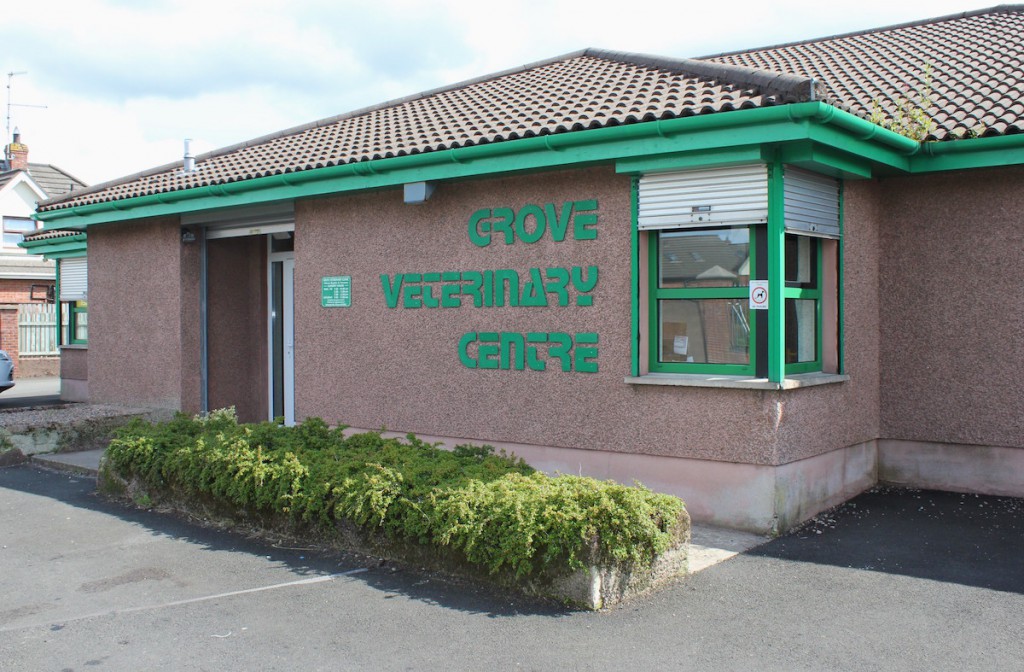Grove Vets in Ballymena have seen confirmed cases of Parvo in dogs. Parvo (Canine parvovirus) is high contagious and can be life threatening. It is a virus which attacks the dog’s body can can cause lifelong problems. Here is some information of what to look out for if you are a dog owner:
What Are the General Symptoms of Parvovirus?
The general symptoms of parvovirus are lethargy, severe vomiting, loss of appetite and bloody, foul-smelling diarrhoea that can lead to life-threatening dehydration.
How Is Parvovirus Transmitted?
Parvovirus is extremely contagious and can be transmitted by any person, animal or object that comes in contact with an infected dog’s faeces. Highly resistant, the virus can live in the environment for months, and may survive on inanimate objects such as food bowls, shoes, clothes, carpet and floors. It is common for an unvaccinated dog to contract parvovirus from the streets, especially in urban areas where there are many dogs.
Which Dogs Are Prone to Parvovirus?
Puppies, adolescent dogs and canines who are not vaccinated are most susceptible to the virus. The canine parvovirus affects most members of the dog family (wolves, coyotes, foxes, etc.). Breeds at a higher risk are Rottweilers, Doberman pinschers, Labrador retrievers, American Staffordshire terriers and German shepherds. (Source)

The good news is that Parvo can be easily prevented. Make sure that your dog or puppy is up to date with all of their vaccinations. Common vaccinations protect against parvovirus and are easily administered by your vet. If you are unsure or think that your dog needs their vaccinations then just get in touch with the Grove Vets team who will make an appointment for your dog to get their vaccinations. Grove Vets has convenient parking and is easy to findon the Grive Road in Ballymena. Contact Grove Vets on 028 25656023.